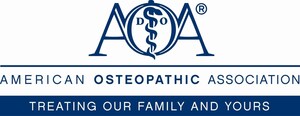Parents of Older Children Concerned About Vaccinations
American Osteopathic Association Survey Shows Only About 35% of Teenagers Received HPV Vaccine
ORLANDO, Fla., Nov. 1, 2011 /PRNewswire-USNewswire/ -- Concerns about vaccinations are not limited to parents of young children. In fact, while the majority of parents see the importance of making sure their children ages 13 to 17 are current on national recommendations for vaccinations, there is a significant difference between the perceived importance and whether their children were fully vaccinated, according to a recent online survey by the American Osteopathic Association (AOA).
The biggest difference was for the human papillomavirus (HPV) vaccine. Approximately 65% of parents note it is important for their children to be fully vaccinated for HPV but only about 34% said their children are.
This discrepancy can be found with the other vaccinations addressed in the survey:
- Approximately 90% of parents say it is important for their children to be vaccinated for meningitis but just about 61% say their children are.
- For hepatitis B, about 88% say it is important to be fully vaccinated while only 73% said their children are.
- With the vaccine for tetanus, diphtheria and pertussis, which are covered by the Tdap vaccine, almost 95% of parents say it was important for their children to be fully vaccinated but just about 84% say their children actually are.
Being concerned about health risks or allergies associated with vaccines is the top reason parents gave as to why they feel it is unimportant for their teens to be current on vaccinations. Another common reason for not vaccinating is that the condition is not considered a serious health threat.
But Stanley E. Grogg, DO, an AOA board-certified pediatrician and an associate dean of clinical research and a professor of pediatrics at Oklahoma State University Center for Health
Sciences College of Osteopathic Medicine in Tulsa, emphasizes the importance of vaccinations in helping to prevent diseases.
"It's understandable that parents might be concerned about potential allergies from vaccines," says Dr. Grogg, a liaison for the AOA to the Centers for Disease Control and Prevention's Advisory Committee for Immunization Practices, which provides guidance with immunization programs. "But in most cases the benefit of vaccinations to help prevent your child from getting any of these diseases outweighs the harm."
Misperceptions about HPV
More than a third of parents express that concerns about health risks and allergies associated with vaccines is the top reason why their children are not vaccinated for HPV. Other reasons parents gave for not having their children vaccinated for HPV included not viewing HPV as a serious health threat and their children are not sexually active and therefore not needing the vaccine.
When asked if HPV is associated with certain forms of cancer, more than 30% of respondents said "No" or "I don't know." Some types of HPV can cause warts and are treatable, according to Dr. Grogg, but others may lead to more serious conditions like cervical cancer.
"Clearly there is a need for more education about how the HPV vaccine can help to prevent the spread of disease, including protecting women from cervical cancer," Dr. Grogg says.
And girls are not the only ones who can benefit from the HPV vaccine. "Recently the U.S. Centers for Disease Control and Prevention recommended the HPV vaccine for males ages 11 to 12. However, the vaccine is available for both genders ages 9 to 26 to help protect them from genital warts," Dr. Grogg adds.
Why focus on these vaccinations?
The survey focused on vaccinations that have unique considerations for teens:
- The TDAP vaccine, which immunizes against tetanus, diphtheria and pertussis, is recommended for teens if they were not fully vaccinated at a younger age. Also, a booster is recommended for individuals ages 13 to 18.
- The MCV vaccine, which immunizes against meningitis, is recommended for children ages 11 or 12 with a booster at 16. There are also well documented and publicized cases of meningitis spreading in communal living settings, such as college dormitories.
- HepB, the vaccine for hepatitis B, is recommended for teens if they were not fully vaccinated at a younger age and arguably has perceived moral implications associated with it due to the way the disease is spread, which includes sexual intercourse and sharing or using dirty needles.
- The HPV vaccine, which immunizes against the human papillomavirus, is recommended for all women ages 11 to 26 and arguably has perceived moral implications associated with it due to HPV being transmittable through sexual intercourse. The vaccine also is safe and effective for men ages 9 to 26.
Other survey results of note:
- For three of the four vaccinations, the middle income level ($25,000 to $49,999) is the least likely to have their teens vaccinated. The only exception was the HPV vaccine, for which the highest income level (more than $50,000) is the least likely to be vaccinated.
- When asked why their children were not vaccinated, with the exception of HPV, the main reason is that parents plan to vaccinate or booster their children in the future.
Resource for Parents
The AOA offers additional information about vaccinations, including national recommendations for vaccinations and health articles about vaccines, at www.osteopathic.org/teenvaccines.
About the Survey
The survey results are being announced during the AOA's OMED 2011, the Osteopathic Medical Conference & Exposition. The conference, which began Oct. 30, will be held through Thursday, Nov. 3, at the Orange County Convention Center in Orlando.
The survey was conducted from Sept. 28 to Oct. 1, 2011. A total of 1,034 respondents completed the online survey. A sample size of 1,034 has a margin of error of approximately +/- 3.1% at the 95% confidence level.
About the American Osteopathic Association
The American Osteopathic Association (AOA) proudly represents its professional family of more than 78,000 osteopathic physicians (DOs); promotes public health; encourages scientific research; serves as the primary certifying body for DOs; is the accrediting agency for osteopathic medical schools; and has federal authority to accredit hospitals and other health care facilities. More information on DOs/osteopathic medicine can be found at www.osteopathic.org.
SOURCE American Osteopathic Association
WANT YOUR COMPANY'S NEWS FEATURED ON PRNEWSWIRE.COM?
Newsrooms &
Influencers
Digital Media
Outlets
Journalists
Opted In






Share this article